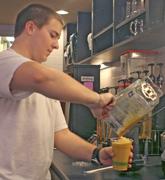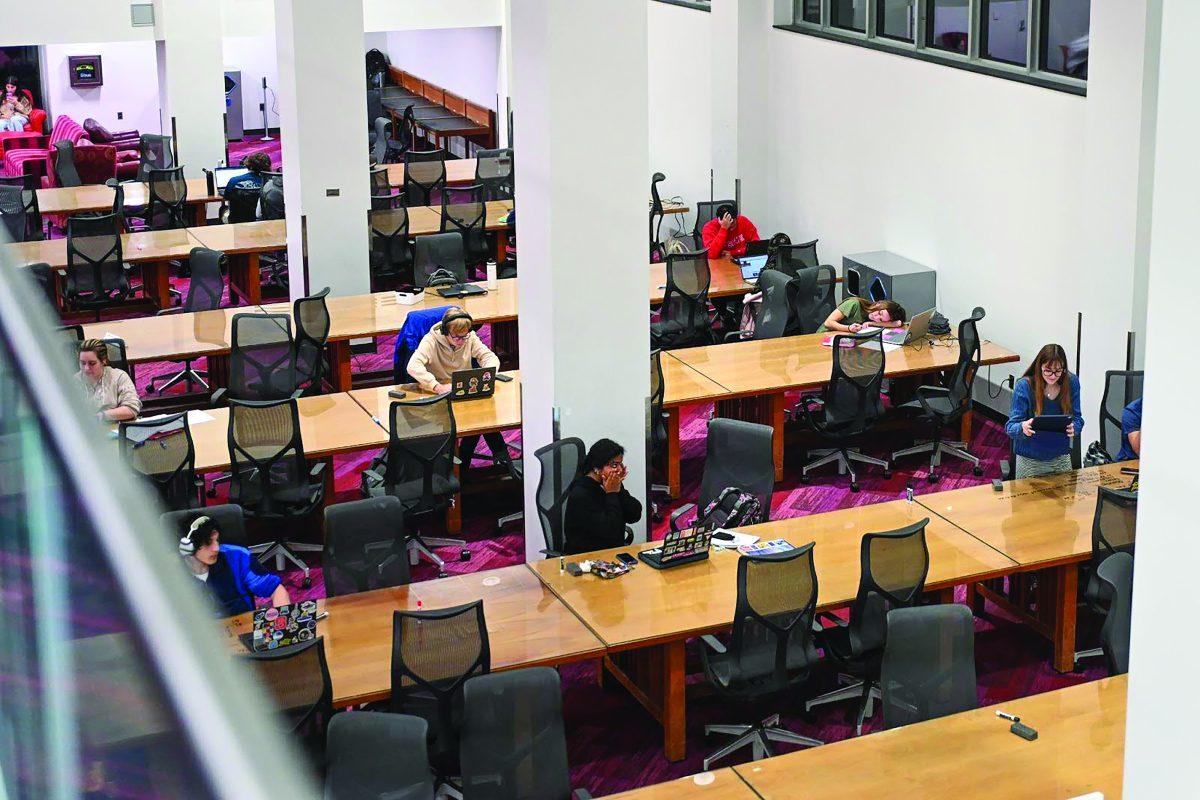It might not be obvious, but higher prices have hit Hillsborough Street.
Business, especially those that are locally owned, have faced the economic downturn — which results in, among other effects, comparatively higher prices for goods and oil — in either of two ways.
The first option restaurant owners have is to raise their prices, allowing their customers to make up the profit margin lost when the same raw goods come with higher price tags. This method maintains an owner’s profit margin but tacks on additional charges to an item. The other option restaurant owners have is absorbing the higher cost of products so that customers do not have to pay more for an item.
Michelle Royals, a co-owner of Ningyo Pearl Bubble Tea House, said the restaurant is doing a little bit of both.
“It’s been a struggle financially,” Royals said. “We don’t want to price ourselves away from Hillsborough Street. We can’t not give customers what they want just because they can’t afford it.”
Doug Pearce, a professor and department head of economics, noted that price increases are a slippery slope — although energy costs are higher, businesses have to watch how much they increase prices.
“It is a ripple effect,” said Pearce. “It comes down to how much of a price increase you can pass on when NCSU students possibly have less to spend.”
Royals and co-owner Nathan Phillips have raised the prices of their spring rolls by 30 cents and have added to their menu specialty milkshakes that cost $4.99. These milkshakes, Royals said, were added mainly to help absorb the profit loss from regular bubble tea products, which now cost more to make but which the owners still sell for the same price — $3.15 for a regular size and $3.65 for as large.
By Royal’s calculations, most of the increase in price started in June. What they once paid for spring roll wrappers when Ningyo Pearl opened in January — $1.79 — is now $2.09. For avocados they paid $4.48 in January and started paying $5.88 in June. That’s a 24 percent increase in price.
Phillips said most price increases came from shipping costs accrued through purchasing products from their supplier in California, Lollicup, a provider that ships its products from Taiwan before selling them to stores throughout the U.S. However, seasonal fruits and vegetables that should cost less because they’re shipped locally, not internationally, in the summer have not changed in price.
“It’s just like an increase in food prices,” Phillips said.
Shipping costs account for about 30 percent of the amount paid for products, Royals said.
Although Royals and Phillips have figured that buying in bulk can cut overall shipping costs, their profit margin has already decreased by 10 to 15 percent.
Royals said they will try to absorb the extra costs for as long as they can, but “when your profit margin starts to get to 20 to 30 percent less, you don’t have many options.”
“We try to give people what they want for fair market prices,” Royals said. “$3.39 is enough for tea … Hillsborough Street is a fickle market anyway.”
Its location at the heart of N.C. State, Pearce said, could help ward off price increases. But he said restaurants on Hillsborough Street are not exempt from economic slowdown.
“Small stores do not have much of a cushion in capital which can lead to problems if business slows down,” Pearce said. “There is a lot of turnover on Hillsborough, which is just common with small businesses.”
And students, the street’s primary customers, may start spending less money.
“One easy way to economize is to eat out less,” Pearce said. “Students may decide to eat in their dorms.”
This makes restaurants “pretty susceptible” to slows in the economy, Pearce said.
Yet, despite this fact, he said he has not really seen a big price increase on Hillsborough Street.
“Stores try to attract customers with lower prices but with different items,” said Pearce.
Even if store owners have raised their prices, Pearce said it can be difficult to measure price increases because restaurants can adjust portion sizes, refills and other variable items on a menu.
“The big problem is that businesses have cost increases that they want to pass on but at the same even though NCSU and Raleigh is stable, it clearly experiences slower growth than in the past,” Pearce said. “And demand and competition makes it difficult to pass these extra costs on.”
Andrew Strong, a junior in civil engineering and a frequent patron of Hillsborough Street, said he has not noticed any price increases at the local restaurants and stores.
Noting ease of location, Strong said he goes to shops on the street very often since he lives just one block away, well within walking distance.
“As a Hillsborough Street resident, I shop and eat at various establishments multiple times throughout the week,” said Strong.
But even if prices did increase, Strong said he would continue to frequent Hillsborough Street “simply because it is too expensive to drive anywhere.”





